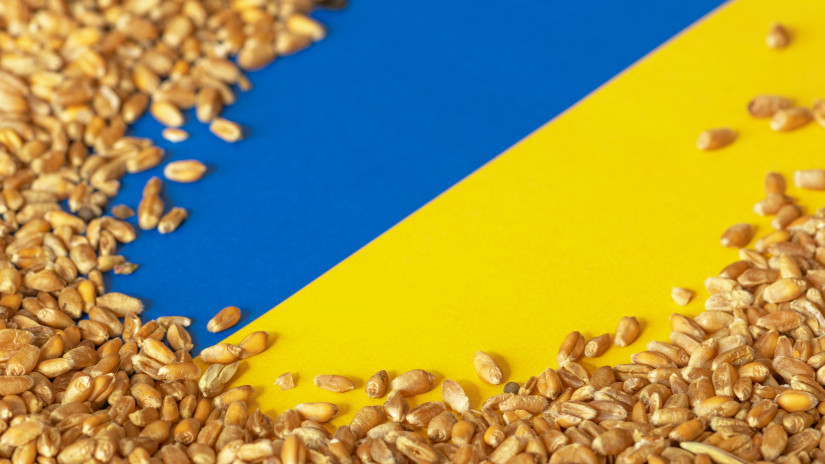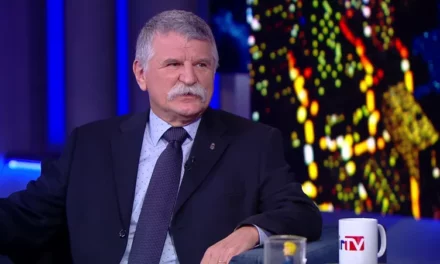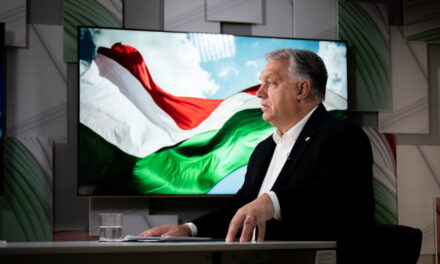The Russians beckoned to the Ukrainian grain trade. Zelensky is begging, but Erdoğan won't help this time. Written by Ákos Béla Révész.
On July 17, Russia canceled (did not extend) the agreement on grain exports to Ukraine, which was concluded under the auspices of the UN and Turkey. During the war, Ukraine delivered its grain to the global markets through the humanitarian corridor maintained by Turkey on the Black Sea - another issue is that the destination countries were far from the ones specified, but for Kiev, income is important, not where its goods are really needed the most.
The agreement, which has been continuously extended since July 2022, has come to an end on Russia's part, but not permanently, according to the Kremlin. If the West withdraws the sanctions imposed on the trade of certain Russian foodstuffs and fertilizers, as well as reconnects the indispensable Russian agricultural bank to the SWIFT system, Ukrainian deliveries can also resume. Until then, says the official announcement, "Black Sea trade is not safe". This means nothing more than that Russian warships will once again blockade Ukrainian ports and shoot at anything that tries to leave them. In a more fortunate case, they are caught at sea for "searching", but this can take forever.
Reacting to Russia's decision, the Ukrainian president is once again waiting for a solution from the West and, of course, from Turkey. He declared with a very twisted logic: "The Black Sea grain agreement can work without Russia and must work in the future."
According to his argument, there are two separate agreements in the same case. One was concluded by Russia with the UN and Turkey, the other was signed by Ukraine with the same mediators. So, says Zelensky, Russia can withdraw from its own agreement, but it cannot affect the other one regarding grain exports. According to him, it is "only" necessary to agree on the method of implementation, and the West must increase its pressure on Russia.
In other words, the Ukrainian president wants to continue the sea grain trade while the Russians issued a strong warning: they will not allow it.
Zelenskiy approached UN Secretary-General António Guterres and Turkish President Erdoğan with the proposal to ignore the Russian threat and continue grain deliveries under a renewed tripartite agreement.
According to the Ukrainian proposal, Turkey would practically provide a military escort for safe access to the ports and vice versa. What Erdoğan has to say about this is anyone's guess. The Turkish president invested enormous energy in getting the whole world to recognize his status as a mediator between the warring parties: he finally achieved this precisely in connection with grain shipments by creating the humanitarian corridor. It would be a huge risk for him to step out of this role and intervene in the conflict with military means instead of advocating for the continuation of negotiations. This would threaten the collapse of the extremely delicate balance position established between the Kremlin and the West, that is, its entire foreign policy so far.
It is quite certain that Turkey will never agree to such a settlement. He will do everything to restart the negotiations, but he will not commit himself to Moscow for Ukrainian interests.
The biggest obstacle will be the immediate stoppage of the services of the companies that supply Ukrainian grain and the companies that provide them.
Since the ships departing from Ukrainian ports will literally become targets one by one due to Russia's withdrawal, there will not be a big scramble among shippers to sign contracts.
One of the world's largest insurance brokerage companies, Marsh, already suspended all its programs related to Ukrainian grain exports the day after the Russian announcement, meaning that it immediately understood that the case was at a stage where the insurers could only be guaranteed losers.
Transport companies, which have provided fleets of ships to deliver Ukrainian grain to the global market, think in a similar way. The biggest trading player, Greece, has already blown a retreat: speaking to Bloomberg, the director of the shipping company Doric Shipbrokers SA, which has taken an active role in deliveries so far, made it clear: "No sane owner sends ships there without insurance. Without the protection of the humanitarian corridor, Ukrainian trade is dead”.
With the Russian ultimatum, the situation returned to where it had been after the outbreak of the war. Kiev tries to transfer the grain stuck in Ukrainian ports to the territory of the EU by river and land, from where the shipments would theoretically go to destination countries outside the continent. Only in theory, because in practice it has never been realized.
With the fact that after the outbreak of the war, the EU gave Ukraine a tariff exemption towards the EU, it committed a huge blunder. Ukrainian exporters - taking advantage of the loophole - flooded the EU market with cheap, but uncontrolled grain of increasingly poorer quality as time went on, the juice of which was primarily consumed by neighboring countries, including Hungary.
The grain stuck in Europe never reached the countries that really needed it, but it was good enough to make it completely impossible for the EU member states to sell high-quality products that meet all the requirements.
Satisfied with Brussels' impotence, the countries neighboring Ukraine finally ordered a ban on Ukrainian grain under their own authority. Brussels finally agreed to this with great difficulty, currently with a deadline of September 15, but Agriculture Minister István Nagy has already indicated that the ban must be extended at least until the end of the year.
However, if the Ukrainian ports are closed again, Kiev will obviously want to speed up the transit deliveries through the neighboring countries again, and due to the loss of income, it will try to sell the grain again in the EU territory, which means that Hungary will again have to face the same danger that it has been fighting against for a year.













